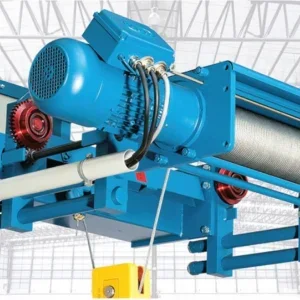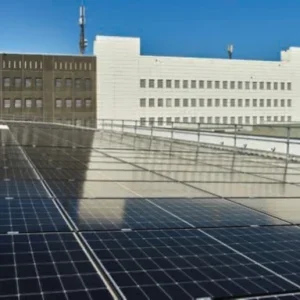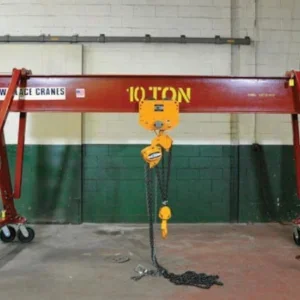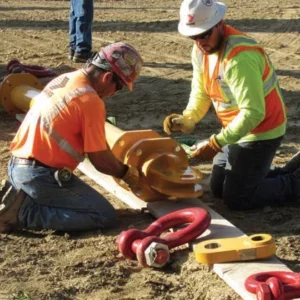Konecranes supplied the A$97.2m project in Exmouth, Western Australia with two CXT doublegirder underslung cranes with lifting capacities of 15t and 20t. The cranes were underslung due to the compact spaces in the building, said Konecranes, and the number of other structures due to be installed in the same areas.
The project includes a 270t rotating dome; one of the cranes can remain locked in position as the dome rotates, enabling it to still perform all of its usual functions at whichever direction the building is facing.
The section of the building at which the crane is attached is capable of rotating up to 17° a second.
The facility is being built for the Australian Defence Force by managing contractor Sitzler, and is on track to meet initial operating capability by 2021. Exmouth was chosen as the site for the telescope as it provides clear and dark sky conditions with low light pollution. The Department of Defence said that the telescope will increase the capacity for detecting and tracking objects in space to manage threats, including space debris, and to predict and avoid potential collisions.
The project required customised cranes, with Sitzler working with Konecranes to ensure that the cranes had the right structure and features to meet all installation and maintenance requirements.
“The cranes needed to meet tight space requirements, and utilising underslung cranes—which are typically involved in one in every hundred projects—provided better hook approaches to suit the client’s lifting requirements,” said Claudia Estrada, project manager, Konecranes.
The cranes both feature Konecranes’s Extended Speed Range (ESR) smart feature, which uses a variable speed drive for enhanced precision and control when lifting delicate and valuable parts.
“ESR was particularly valuable for this project, because the telescope’s powerful mirrors, which are the key to its functionality, are highly valuable items,” said Estrada. “If one mirror becomes damaged during installation, it’s a very expensive and highly specialised part to replace.”
Paul Gurr, project manager at Sitzler, said: “In addition to the ESR and other functionality specifications, there were extra safety requirements for locking of the crane while rotating, and Konecranes was able to meet the stringent requirements.
“Konecranes is a world leader in safety and the brand is known for its quality, reliable products. These qualities, plus their ability to meet all the customised needs of this project, were major factors in the decision to recommend Konecranes as the overhead crane equipment and service provider.
“Right from the beginning, Konecranes was thorough with detailing and reporting, which helped us with the smooth and efficient management of the project, and ensured we remained on schedule.
“Their installation work was also of outstanding quality. Their staff were well qualified, experienced and completed work efficiently and productively, with excellent communication with other involved companies.”






